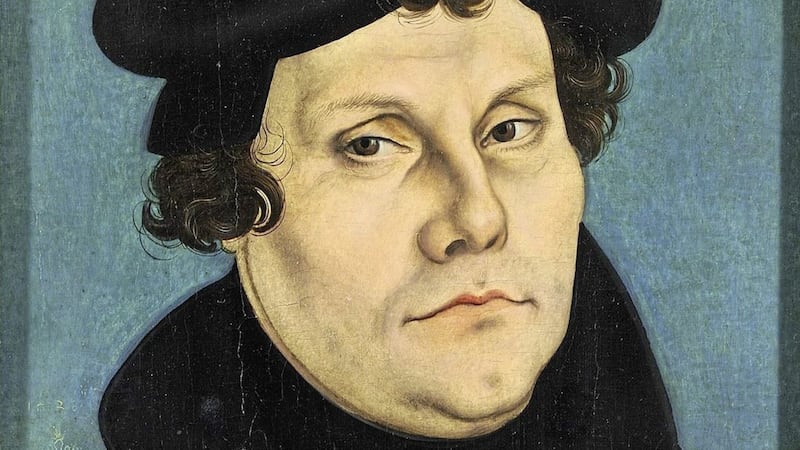The Irish love their history so much that they tend to have two versions of it. Roughly speaking, these might be regarded as the Catholic version and the Protestant version, with both sides commemorating and celebrating different historical events.
It is odd therefore (or maybe not) that the event which initially triggered this religious division is not being commemorated widely here. Welcome to the 500th anniversary of the Reformation, which established Protestantism, reformed the medieval Catholic Church and laid the basis for Stormont's sectarian division of MLAs into Protestant, Catholic and other.
(If you are already penning a letter indicating that MLAs are divided into nationalist, unionist and other, please add a paragraph explaining the difference between religion and politics here.)
So what, you ask, is there to commemorate about the Reformation? Three things: it was a wonderful outburst of original and challenging thought (and not many of those have reached Ireland), it influenced much of the past 500 years of Irish history and in politics and education here, its consequences have not gone away you know.
It all began in 1517 when Martin Luther argued that the Church's system of indulgences was a bit of a scam, especially since it usually involved payment. He had a point about the payment, and you will have your own opinion on his argument that faith in Jesus, and not good works, is the only way to heaven.
Whatever your view, it is hardly a basis for a system of government in Belfast in the 21st Century. (This column offers no opinion on the debate on the grounds that there is no point in making enemies with those in charge of heaven before you even arrive at the gate.)
So the Reformation initially represented liberation from an authoritarian Church with often unethical behaviour and introduced a new spirit of enlightenment. (In England, Henry VIII had a different agenda, so we might be as well to skip that bit.)
But, just like the 1916 Rising, many of the Reformation's original values and principles tended to become lost as later generations cherry-picked it for their own personal or political advantage.
For example, the accession of King Billy to the English throne in 1689 is seen (certainly in this part of the world) as a Protestant victory. But it brought religious persecution for Catholics and Presbyterians through the penal laws, which was hardly what Luther had in mind 200 years earlier.
It also re-introduced the medieval concept of combining religious and political power in the same person.
The British monarchy is still based on that principle. The Queen is both head of state and head of the Church of England (CofE), an arrangement which allows 26 CofE bishops to sit in the House of Lords. (Iran is the only other country where parliament reserves places for unelected clerics.)
In fairness the Church of England is remarkably fair-minded - a sort of ecclesiastical version of cricket. Anthony Trollope said it was the only church in the world that interferes neither with your politics nor your religion.
Despite that, a Catholic cannot be British monarch. Indeed, no Catholic has even been prime minister. (Tony Blair converted after he left office, so the illegal invasion of Iraq was presumably the work of a Protestant.)
So how should we commemorate the Reformation? (No, you may not suggest that MLAs might hold a short service in thanksgiving, on the basis that it secured many of their electoral majorities.)
Among the Church of England's anniversary events are a Reformation Study Day, (including a Dominican priest as a speaker) and an ecumenical service in Westminster Abbey. The Pope has already addressed a Lutheran-Catholic liturgy on the Reformation.
Here, our main (and maybe only) commemorations are being organised by the Orange Order, which was formed 278 years after the Reformation. Some may wonder if the Order's claim to agree with Luther's ideals can sit easily with its support for the Queen as an unelected leader of church and state. Maybe commemorating the Reformation is too important to be left to Protestants.
We should all commemorate it, because Luther's "two kingdoms" approach was an attempt to segregate religion from politics. In that context we might argue that the Queen should lose at least one of her jobs and Stormont should classify its MLAs by normal politics, not religion.
Like much of our history, the Reformation is poorly understood here. What it teaches us is that an argument about how to reach the next world is no basis for society and politics in this one. It is a lesson we might all try to learn.









